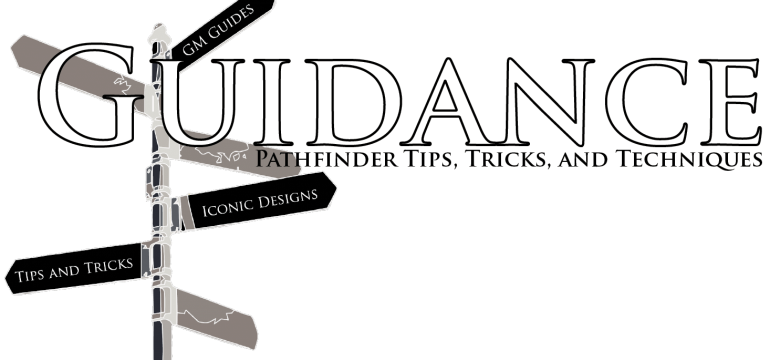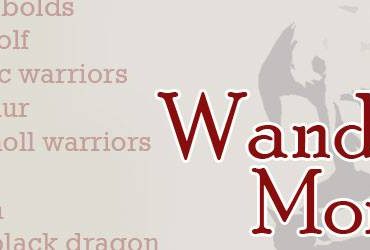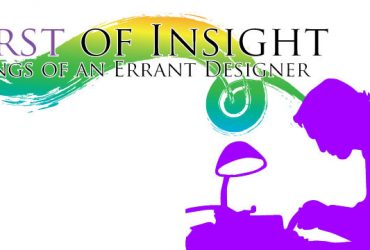Pathfinder and its predecessor, Dungeons & Dragons, have a very strange history with professionalism in terms of writing. Our community has always turned to major, 1st-Party Publishers (“1PP”) for its content, but in the back of the community’s mind is the insidious knowledge that the Tabletop genre is written by fans, for fans. Thus much in the way football fans watched last night’s Super Bowl and screamed plays and tactics for their favorite team as if they actually had the experience and technical know-how to make those calls, Tabletop RPG players waltz onto messageboards, spouting commands and ultimatums to designers and publishers as if they had the experience and technical know-how to design those games.
Well, I hate to break it to you, folks, but the vast majority of RPG customers are NOT RPG design prodigies—hours spent skimming through submissions during the now-defunct RPG Superstar taught us that much. And let me tell you, NO ONE knows this better then an industry person who has to actively sift through fan submissions. I’m willing to bet that Tim Nightengale, patron of the fantastic Wayfinder fanzine, knows this better than anyone, but any publisher who has ever had a new designer work for them has gone through this “anti-honeymoon,” or for the purpose of this article, “the cough syrupmoon.” Because man-oh-man, taking in and molding new talent is GOOD for your company in the long run, but sometimes new writers REALLY do not go down easy!
But today’s article isn’t for publishers—I’m not about to tell them how to pick their people for projects. (At least, not yet anyway.) Instead, I want to target this article, the first in a four-part series, to the rabid fan who is brimming with great ideas that they’re just itching to sell to someone / get published. Because honestly, THEY’RE the one who needs the support, not the publishers. With that in mind, let’s get started!
Marketability and You
Now, if this was a conventional article, you’d be getting all of this advice about how to brainstorm or how to come up with ideas, but I’m not wasting your time with that. I assume that if you’re serious about writing for RPGs, you probably already have ideas swishing about in your mind. You have inspiration that you think is good enough to get you published. So instead of helping you learn how to be creative, I’m going to teach you about how to be pragmatic with your creativity. This probably surprises you, but here’s the thing—you pick the most God-awful actor in Hollywood today and Hollywood can do a lot to “improve them in post” using advanced techniques like CGI, voice sampling, and image rendering. But let me ask you this—how much do those techniques cost to employ? Millions upon millions of dollars, perhaps? While it won’t cost your publisher / developer millions upon millions of dollars to clean up your work after you’ve submitted it, it DOES cost that publisher creative and financial time to fix what you’ve done. And folks, let me be the confirmation—if you are too difficult to work with, your publisher WILL dump you. Your skills need to be marketable for you to be successful as a freelancer, and that means that your product needs to be something your publisher can use.
So, what makes you marketable? Well, I’m glad you asked! Below are, in my opinion, the four most important qualities that freelancers need to be marketable.
Innovative
Everyman Gaming, my personal 3PP, has a slogan that was no accident. “Innovation is never more than a page away.” I picked this slogan intentionally, since I knew the importance of innovation when it came to RPG consumers. But what, you might be asking, is innovation?
Innovation is, simply put, something new. A new method, a new product, a new idea. In Pathfinder terms, I specifically use innovation to mean, “Something that’s never been done before, or something old presented in a new way.” To be a marketable freelancer, your ideas needed to show that you’re capable of doing things differently from the way they’ve been done, because newness sells and stagnation kills businesses. This means that going up to a publisher and offering, “archetypes that let every class gain trapfinding in a near identical way” is probably not going to be an enticing pitch, regardless of how well-balanced your ideas are, because they lacks innovations.
Of course, innovation can be taken TOO far. If your ideas are so new and shiny that they lack and solid foundation from which your customers can use to scaffold your new concept, there’s a good chance they’re not going to like your ideas at first (possibly ever) because they’re too hard to get around.
Timely
There are two aspects to “timely” when it comes to the marketability of your work—timely in the sense of need and timely in the sense of production. A timely product is one that the players want and need—it fills a niche that players are clamoring for, and does so at the perfect moment. As an example, Paizo’s Pathfinder Unchained product is timely because Pathfinder was about 5 years old when it came out, and Paizo had built up enough credit with their community that people started to wonder, “What could Paizo do if they had done the game their way instead of 3.5’s way.” Releasing Unchained right after the Core Rulebook, however, would NOT have been a timely move. Always make sure that it is a good time for your product. (Because it isn’t always.)
Along different lines, timely can also refer to your practices as a freelancer. To be marketable, you need to be able to move and adapt to changes quickly. Not only does this mean that you need to turn in your turnovers on time, but you also need to respond to questions and provide feedback quickly. Doing so improves your professionalism, which will also help you be a better fit for whomever you are working with.
Standardized
Your work needs to be standardized in the sense that it fits with the style and form of the 1PP. You might not like that, you might think its absolutely terrible, but your work sells a LOT better when it feels “as good as First Party, if not better,” and you get that from standardization of language and game mechanics balancing.
Lawful
Trust me when I saw that I can hear the “Hur dur I’m Chaotic Neutral!” jokes from Philadelphia, but the #1 thing that separates “good” 3PP freelancers from “great” 3PP is respect for the law—specifically the laws of 3PP tabletop publishing, the OGL and the Pathfinder Compatibility License.
And there you have it, the four basic tenants that YOU need in order to be a good 3PP freelancer. Over the next couple of months, we’ll be looking at each of these tenants in-depth and talking about ways that you can improve your writing and design by following these tenants.
So until next time, I’m Alex Augunas and I’m always here for YOU when you need a little bit of Guidance. Take care!
Alexander “Alex” Augunas has been playing roleplaying games since 2007, which isn’t nearly as long as 90% of his colleagues. Alexander is an active freelancer for the Pathfinder Roleplaying Game and is best known as the author of the Pact Magic Unbound series by Radiance House. Alex is the owner of Everyman Gaming, LLC and is often stylized as the Everyman Gamer in honor of Guidance’s original home. Alex also cohosts the Private Sanctuary Podcast, along with fellow blogger Anthony Li, and you can follow their exploits on Facebook in the 3.5 Private Sanctuary Group, or on Alex’s Twitter, @AlJAug.






